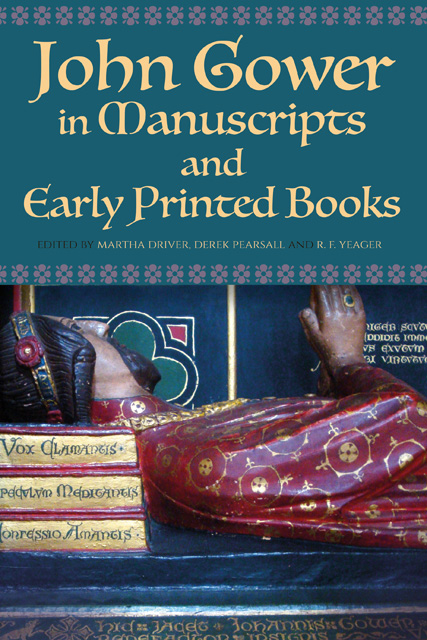4 - What Lies Beneath
Published online by Cambridge University Press: 18 January 2023
Summary
The story of a king who devises a lesson for his discontented courtiers in “The Tale of the Two Coffers” poses a conundrum for John Gower’s devotion to “plain” referentiality – a direct, or at least reliable, relationship between what you see and what you get, expressed in the Confessio Amantis’ recurrent rhyme between the visible “visage” and the intentions of the hidden “corage” (CA Pro. 111–12). Although rarely the overt topic of the narratives in the collection, the problem of reference reveals a habit of mind that helps to map out Gower’s understanding of and attitude toward major tensions in the civil society for which he wrote the poem. The two coffers in this story thwart the transparency of ethical, visual, and linguistic reference to which the Confessio frequently adverts. Their contents are hidden by identical appearances not merely deceptive, but opaque and incommunicative. In representing the choice between the two coffers as a consequence of both fortune and individual ethical character, the tale also participates in another recurrent confusion in the poem, discussed by Russell Peck and Matthew Irvin: that between “‘chance’ and ‘pourveance.’” These threads have led me to the central design of the tale as well as its place in Book V’s examination of avarice and possession in both politics and love. Working from the problem of reference and the role of fortune in delivering a lesson in ethical choice, I shall argue that the story explores Gower’s tentatively skeptical thinking about kingship and secular dominium; further, its peculiarities may be explained as Gower’s effort to differentiate his thinking from Wycliffite ideas that were perhaps too close for comfort.
“The Tale of the Two Coffers” is a perverse story. It concerns a “wise king” (CA V.2388) whose discontented older courtiers grumble constantly about his failure to reward them with the advancement they believe is their due owing to their lengthy service. Their situation recalls that of workers who labor all day in the Parable of the Vineyard, only to see those who arrive late to the task receive the same penny. Like the vineyard laborers, who expect to be paid more than the latecomers, they reason from a principle of equity, a fair ratio of service and recompense. But the resemblance between parable and tale is only partial, for these courtiers receive nothing at all:
- Type
- Chapter
- Information
- John Gower in Manuscripts and Early Printed Books , pp. 71 - 88Publisher: Boydell & BrewerPrint publication year: 2020



